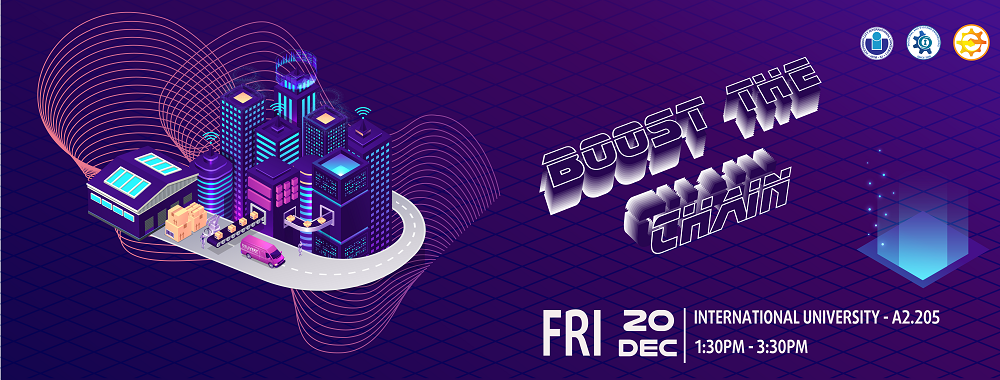Seminar: Al and Supply Contracts in Supply Chains

Topic 1: People-centric Artificial Intelligence: Methods and Applications
Abstract:
In the last decade, artificial intelligence (AI) has risen as a key factor for success in the big data era. With the recent advances in the field, AI has been widely adopted in various application domains from medicine, energy, to supply chain management. For certain cognitive tasks such as image classification, AI-based tools have shown to be more productive as compared to conventional solutions, and gradually outmatched human performance. These achievements have motivated researchers and practitioners to improve and extend AI technologies in order to solve more complex problems such as self-driving cars, digital marketing, and medical diagnosis. To cope with these challenging problems, more sophisticated techniques such as reinforcement learning, transfer learning, and generative modelling must be considered in modern AI. While the preliminary outcomes are promising, the increasing levels of sophistication and automation of AI applications have raised a number of concerns related to trust, reliability, and fairness. Given that AI or the decisions made by AI will impact more and more users, it is more important than ever to understand why AI makes a decision and how a decision is made. This talk will provide an overview of interesting research topics in explainable AI (XAI) and discuss our recent research on combining topological data analysis, data visualisation, and evolutionary computation to improve the interpretability of the AI models. We also show how our proposed algorithm can be used to enhance the predictive performance of AI models and incorporate user preferences. Two problems, dynamic production scheduling and high-dimensional classification, are used to demonstrate the applicability of our proposed algorithms.
Speaker: Dr. Nguyen Phan Bach Su
Dr Su Nguyen is a Senior Research Fellow and Algorithm Lead at the Centre for Data Analytics and Cognition (CDAC), La Trobe University, Australia. He received his Ph.D. degree in Artificial Intelligence and Data Analytics from Victoria University of Wellington (VUW), Wellington, New Zealand, in 2013. His expertise includes computational intelligence, optimization, data analytics, large-scale simulation, and their applications in energy, operations management, and social networks. His current research focuses on novel people-centric artificial intelligence to enhance explainability and human-AI interaction by combining the power of evolutionary computation techniques and advanced machine learning algorithms such as deep learning and incremental learning. His works have been published in top peer-reviewed journals in evolutionary computation and operations research such as IEEE Transactions on Evolutionary Computation, IEEE Transactions on Cybernetics, Evolutionary Computation Journal, IEEE Transactions on Intelligent Transport Systems, and Computers and Operations Research. He is a member in the IEEE CIS Technical Committee on Data Mining and the guest editor of special issue on “Automated Design and Adaption of Heuristics for Scheduling and Combinatorial Optimization” in Genetic Programming and Evolvable Machines journal. He also serves as a reviewer of high-quality journals and top conferences in evolutionary computation, operations research, data mining, and artificial intelligence.

Topic 2: Supply Contracts in Supply Chains
Abstract:
Due to the practice of outsourcing nowadays in many supply chains, original equipment manufacturers (OEMs) have got involved in different types of contract with contract manufacturers (CMs) in order to ensure supply sources of components for their products without spending a lot of investment in manufacturing facilities to produce these components. This trend also occurred at downstream level of supply chains where the retailers/distributors look for supply contracts with manufacturers so that their profits are maximized while still satisfying customer demand in the current highly uncertain business environment. It has been found that traditional supply contracts such as wholesale price contract and long-term contract cannot help reach maximum profit for the whole supply chain. This finding, therefore, requires the development of suitable supply contracts that can not only help reach the maximum profit for the whole supply chain but provide a mechanism to share the total profit fairly among the supply chain members as well. The development of hybrid contracts is also needed to deal with the effect of supply disruption due to the occurrences of unexpected events (e.g., earthquakes, floods, strikes, etc.) in the supply network
Speaker 2: Associate Professor, Dr. Huynh Trung Luong
Huynh Trung Luong is an Associate Professor in Department of Industrial Systems Engineering, School of Engineering and Technology, Asian Institute of Technology, Thailand. He received his Doctor of Engineering (D.Eng) from Industrial Systems Engineering, Asian Institute of Technology, Thailand in 2000. His teaching and research interests include establishment of emergency inventory policies, inventory policies for perishable products, supply chain design, measures of bullwhip effect in supply chains, supply contracts in supply chains, availability-based and reliability-based maintenance. He has published articles in various peer reviewed international journals and currently serve as the region editor of Industrial Engineering & Management Systems (IEMS) Journal as well as the reviewer for various international journals.
